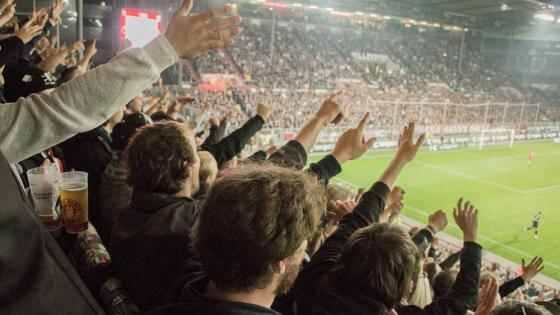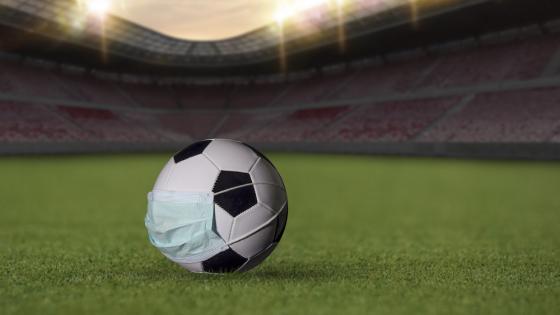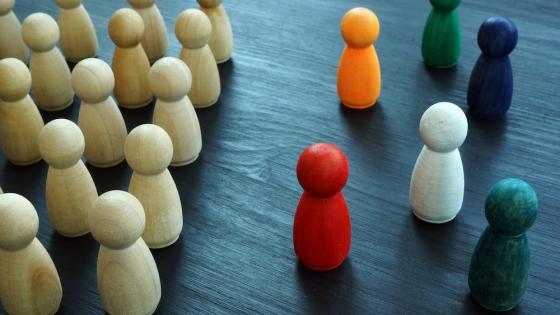Sports events are a unique public display of emotions and frustrations. In football, the noisy support of spectators is an integral part of the ‘beautiful game’, as each side attempts to intimidate the other and cheer their team to victory (van Ours and van Tuijl 2010). As a mentality of ‘us’ vs ‘them’ sets in, however, support for one’s team often turns into a language of disparagement and insult against the rival, which can rapidly descend into discriminatory and racist behaviour.
The problem of racism in football is well known, but it persists largely unabated. The insults received by black players on the English national team after the recent UEFA European Championship final are only the latest example of a deep-seated problem (Barnes 2018, Giuffrida 2019, Bassam 2020, Sky UK 2021). While it goes without saying that fighting racism in football is a moral imperative, little is known about the impact of racial harassment on the performance of the athletes who are targeted. One may hypothesise, for instance, that intimidation lowers the quality of athletes’ performance and is therefore detrimental to the sport. Uncovering this mechanism would serve the broader purpose of shedding light on the impact of racial harassment on the productivity of economic agents.
The COVID-19 pandemic provided a natural experiment (Singleton et al. 2021) that we can use to test this hypothesis (Caselli et al. 2020). In early March 2020, the main Italian football championship, Serie A, was interrupted in an effort to prevent the spread of the virus (Reade et al. 2020) and resumed at the end of June with ‘ghost games’ – matches played without supporters at the stadium. As racist intimidation from fans against players is frequent and widely documented in Italy, this natural experiment allows one to test whether minorities that are most commonly subject to abuse experience a differential change in performance when the stadium goes silent. Italy is also ideally suited for this study thanks to the availability of detailed data on individual players' performance at the match level.
Our analysis shows that players from Africa, who are most heavily targeted by racial harassment during matches, experience a significant improvement in performance when supporters are no longer at the stadium, while the performance of players from other regions does not change significantly (Figure 1). The effect is documented using comprehensive information on the individual performance of players in each game. The dataset is based on a widely used (publicly available) algorithm that focuses on a wide array of objectively measured performance metrics (e.g. number of passes, dribbles, assists, goals). The analysis controls for a broad range of competing factors, including player characteristics (individual ‘fixed effects’) and match conditions, including the weather.
Figure 1 Difference in players’ performance pre- vs post-lockdown, by group
Source: www.fantacalcio.it (authors’ calculations)
Notes: The figure reports the mean difference along with 95% confidence intervals in players’ performance pre- vs post-lockdown by group. The difference for players from other regions not included in the graph, which jointly account for less than 2% of all players, is not shown for conciseness (and it is not statistically significant).
The second result of our study is that performance improves more substantially among African players whose teams were subject to racist abuse prior to the lockdown. The result is obtained by adding to the analysis data on episodes of racist conduct that were officially recorded by the Italian authorities in the first part of the season. This corroborates the hypothesis that racism plays a strong role in driving the findings. A battery of robustness checks excludes competing hypotheses, including sheer ‘choking effects’ of large crowds, lack of experience, and differences in athleticism that may have generated an advantage for certain players after a prolonged interruption in the championship.
Our results fit a broader framework that stretches beyond the world of sports, whereby individuals who belong to historically discriminated groups perform worse than their peers when the task takes place in an environment in which discriminatory behaviour occurs manifestly. More generally, the analysis fits within an ever-growing literature documenting the role of racial discrimination in driving labour market disparities (e.g. Deschamps and De Sousa 2015, Lang and Spitzer 2020, Aizer et al. 2020, Bayer and Charles 2018). Furthermore, since the research shows that discriminated players do better in the absence of fans while no other groups do worse, the evidence suggests that racial harassment leads to an overall decrease in productivity and efficiency. The issue has also begun to attract the attention of the media and new statistics on the issue have circulated after the release of the working paper, corroborating the findings (e.g. The Economist 2021).
Finally, it is worth pointing out that the results are particularly striking because they concern elite athletes, who are the best in their profession and typically enjoy high earnings as well as enviable social status. Further investigation would be necessary to test the impact of racism on the performance of athletes in lower-ranked leagues, and especially among youth, where one can imagine the impacts of discrimination being even more significant and harmful.
The conclusion of the study is that racism can do economic harm to the football industry. Football, like other sports, thrives on fans from all over the world seeking to watch and emulate extraordinary players who perform beyond the normal. When a significant share of players cannot express their full potential, the ‘beautiful game’ becomes less beautiful and less appealing.
References
Aizer, A, R Boone, A Lleras-Muney and J Vogel (2020), “Discrimination and Racial Disparities in Labor Market Outcomes: Evidence from WWII”, NBER Working Paper No. 27689.
Barnes, J (2018), “If every racist at football was silenced stadiums would still be full of racists”, The Guardian, 12 December.
Bassam, T (2020), “Sharp rise in football racism as incidents go up by more than 50% in one year”, The Guardian, 30 January.
Bayer, P and K K Charles (2018), “Divergent Paths: A New Perspective on Earnings Differences Between Black and White Men Since 1940”, The Quarterly Journal of Economics 133(3): 1459-1501
Caselli, M, P Falco and G Mattera (2020), “When the Mob Goes Silent: Uncovering the Effects of Racial Harassment through a Natural Experiment”, DEM Working Paper No. 2021/1, University of Trento.
Deschamps, P and J De Sousa (2015), “Labour mobility and wage discrimination: Theory and evidence”, VoxEU.org, 13 February.
Giuffrida, A (2019), “Italian football racism a scourge of youth game too, say campaigners”, The Guardian, 26 September.
Lang, K and A K L Spitzer (2020), “Race discrimination: An economic perspective”, Journal of Economic Perspectives 34(2): 68-89.
Reade, J, M Olczak and M Yeo (2020), “The spread of Covid-19 and attending football matches in England”, VoxEU.org, 30 November.
Singleton, C, A Bryson, P Dolton, J Reade and D Schreyer (2021), “What we can learn about economics from professional sport during Covid-19”, VoxEU.org, 31 January.
Sky UK (2021), “England fans boo players taking a knee before Romania friendly at Riverside Stadium”, 6 June.
The Economist (2021), “Non-white footballers played better when stadiums were empty during the pandemic”, 10 June.
van Ours, J and M van Tuijl (2010), “They think it’s all over: National identity, scoring in the last minute, and penalty shootouts”, VoxEU.org, 15 June.







